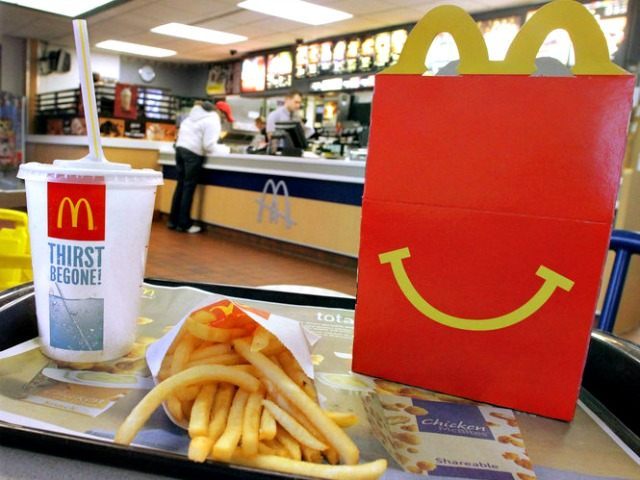After a potato shortage forced McDonald’s to remove them from menus, Venezuelans will now once again be able to purchase French fries at local franchises — made using only local ingredients, and costing about $133 for a large serving.
McDonald’s, which runs more than 100 restaurants in the South American nation, announced in January that they would no longer be able to sell French fries in the country. Initially, the American chain claimed a “contract dispute” had prevented them from continuing to export the fries out of the United States. “We will continue to give our clients the McDonald’s experience, offering 100 percent Venezuelan options,” McDonald’s announced then.
The company is still unable to import fries into the United States, but it has found an alternative: using Venezuelan-grown potatoes to make the fries abroad. Fusion reports that the initiative will allow Venezuelans to purchase fries made from local products, but it comes at a price: a large portion of fries cost 800 bolivares, or about $133, what Fusion estimates to be ten percent of an average monthly wage in Venezuela. A medium order of fries will cost around $79.
McDonald’s has been advertising the return of a “mystery” item to Venezuelan menus all week, and promoting the product as “100% Made in Venezuela”:
The $133 price estimate is based on the official exchange rate between dollars and bolivares, which is set by the nation’s socialist government and is believed to be significantly higher than the actual value of a bolivar on the market. Anti-communist site Cubanet notes that the official exchange rate is 6.3 bolivares per dollar, but the actual exchange rate is believed to be closer to 700 bolivares per dollar.
The Venezuelan government has actively persecuted outlets that report the actual value of the bolivar. The government of President Nicolás Maduro sued Dolar Today, a website founded to help Venezuelans keep track of the actual value of their money, in October for reporting the values, calling the practice “cyber-terrorism.”
Venezuela has experienced a series of shortages of common goods since Maduro took over for late dictator Hugo Chávez in 2013. Venezuelans routinely wait on supermarket lines for five or more hours to buy rationed basic goods like milk, flour, and vegetable oil; the problem has become so commonplace that some are making a living as professional place-holders on supermarket lines. While Venezuelan official temporarily quell shortages of individual products with imports, like the 30,000-ton shipment of sugar that arrived in Venezuela from Brazil this week, the price controls and rations imposed on the average Venezuelan continue to take a significant toll.
In addition to food, Venezuela has been previously forced to ration water, and has run out of items such as toilet paper and lumber to build coffins, a shortage exacerbated by Venezuela’s high violent crime rate.
Maduro has blamed the shortages on an “economic war” waged by shadowy forces in the American government against Venezuela. In televised remarks this week, Maduro urged the people to “risk it all to triumph in the economic, social, political, and all sorts of battles ahead in 2015.” “They have hit us by hiding products and reselling them,” he said of an unnamed enemy, while also bragging of “the lowest poverty levels in the country in history,” according to government estimates.

COMMENTS
Please let us know if you're having issues with commenting.